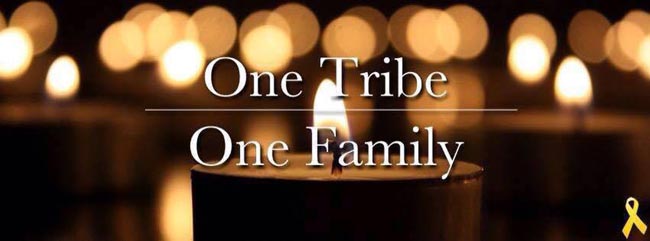It’s easy to say that everybody processes grief and loss in their own way. Yet, it has become apparent that the grief of others is something that can often be too easily overlooked.
The suicide that took place on campus this semester affected members of the College of William and Mary community in many different ways. Throughout that week, students and alumni expressed their sadness as well as offered thoughts, prayers, kind actions and even free hugs across campus and social media alike. At the same time, the College’s mental health resources for students have been called into question as we all consider why this tragic event took place and how to prevent it from happening again.
A widely circulated email shared on the Facebook page, Overheard at William and Mary, detailed a student’s request for an extension on an exam from her professor. Despite her explanation of how this week’s tragic events have left her “in inconsolable pieces,” the student, whose name and email address along with those of her professor have been redacted, was met with a simple and painfully unsympathetic response reading: “I am very sorry for your grief. However, I will not excuse you from tomorrow’s exam.”
When I first read this email I was split in my reaction. At first, I was shocked at this entirely unfeeling response. No part of me could even begin to imagine what it must have felt like to realize that a professor, somebody with whom students should feel comfortable sharing their ambitions, fears and sorrows, would refuse such a meaningful request without a hint of consideration or even offering to meet with the student to discuss an alternative solution.
On the other hand, part of me was relatively unsurprised. While I have generally enjoyed my interactions with my professors during my time at the College, I have witnessed several instances in which friends and classmates have struggled to convey their difficulties to their professors. When faced with an illness or injury that requires more recovery time than the three unexcused absences that many syllabi permit, an unfortunate number of students are forced to passively accept a lowered or even failing grade in a course.
It has come to the attention of many in the community, including the College’s Provost Michael Halleran that healing cannot take place if the educators, who have such a large hand in the lives of students, fail to support them both in and out of the classroom. Halleran called upon the faculty to “provide reasonable flexibility” when accommodating students throughout the academic year, particularly during difficult times such as these.
I applaud Provost Halleran for not only being aware of the conversations that are sparking on social media and permeating throughout campus, but for using his authority to directly address faculty members. Throughout our time as college students and as we go on to careers post-graduation, we, as William and Mary students will achieve great things in our chosen fields. We will prove our worth and dedication and we will make ourselves, and those we care about, proud.
However, it is important to remember that we are only human. We are not capable of achieving every goal that we set our minds to or reaching them on the first try. With that said, as we begin to define ourselves, our values and work ethics, we need our professors, mentors and advisers to help and allow us to understand that forward is not the only direction. Oftentimes, taking your foot off the pedal allows for the time that is necessary to take a look around, get your bearings and plot a new course. If that means taking an extra day or two to write a paper or study for an exam in order to produce your best work, it’s in our professors’ best interest to allow that time.
Email Kayla Sharpe at knsharpe@email.wm.edu.

